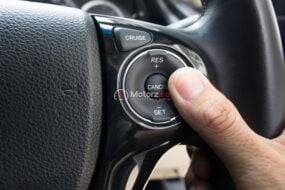The Future of Car Design Trends Shaping Tomorrow’s Vehicles of automotive design is undergoing a radical transformation, driven by evolving technologies, changing consumer preferences, and a growing awareness of sustainability. Tomorrow’s vehicles will not only be more efficient and environmentally friendly but will also boast cutting-edge designs that cater to the needs and desires of a rapidly changing society. In this article, we will explore the key trends shaping the future of car design, from electrification and autonomous driving to sustainable materials and innovative interior concepts, all of which are set to redefine the automotive landscape.
Electrification and Sustainable Mobility
One of the most prominent trends in car design is the shift towards electrification. Electric vehicles (EVs) are becoming increasingly popular as automakers invest in battery technology and charging infrastructure. This transition has profound implications for car design, as electric powertrains allow for greater flexibility in vehicle architecture. Gone are the days when engines dictated the shape and size of cars. EVs offer designers the freedom to create sleek, aerodynamic, and innovative designs. Furthermore, sustainability is a key driver of future car design. Automakers are exploring sustainable materials and manufacturing processes to reduce their environmental footprint. Recycled plastics, bio-based materials, and eco-friendly paint options are becoming common in the industry. Car design is no longer just about aesthetics; it’s about sustainability and responsible manufacturing.
Autonomous Driving and Connectivity
The rise of autonomous driving technology is reshaping car interiors. As vehicles become more capable of self-driving, the traditional driver’s seat may no longer be the focal point of car design. This shift opens up new possibilities for interior layouts. Imagine cars with swiveling seats, fold-out tables, and entertainment systems that turn the cabin into a mobile office or living room. Moreover, connectivity is transforming car design. Infotainment systems, advanced driver assistance features, and seamless integration with smartphones are becoming standard. The user experience is at the forefront of design considerations, with touchscreens, voice commands, and intuitive interfaces taking center stage.
Aerodynamics and Efficiency
Efficiency has always been a concern in car design, but it’s taking on a new level of importance with the push for electric vehicles. Aerodynamics play a critical role in extending the range of EVs. Designers are focusing on reducing drag, optimizing airflow, and minimizing turbulence to make cars more energy-efficient. Sleek and streamlined exteriors are becoming the norm, resulting in cars that not only look futuristic but also perform better in terms of range and energy consumption.
Minimalism and Simplicity
A trend towards minimalism and simplicity is emerging in car interiors. Clean lines, uncluttered spaces, and the use of sustainable materials create a sense of calm and sophistication in the cabin. Reducing the number of physical buttons and switches in favor of touchscreens and gesture controls adds to the sleek, modern aesthetic. This approach to design not only appeals to a sense of elegance but also reduces distractions for the driver, enhancing safety. As vehicles become more autonomous, the interior can transform into a comfortable lounge-like environment, further emphasizing the importance of simplicity and comfort.
Personalization and Customization
Car design of the future will prioritize personalization and customization. With the help of advanced manufacturing techniques and digital design tools, customers will have the opportunity to tailor their vehicles to their individual preferences. From choosing the interior materials and colors to configuring the vehicle’s layout, the possibilities for personalization will be virtually limitless. This trend aligns with the growing desire for unique, one-of-a-kind vehicles that reflect the owner’s personality and lifestyle. As a result, car manufacturers will need to embrace flexibility in their production processes to accommodate these diverse demands.
Conclusion
The Future of Car Design is an exciting journey into a world of innovation, sustainability, and connectivity. From the electrification of vehicles to the emergence of autonomous driving and the emphasis on sustainability and personalization, tomorrow’s cars will not only be functional but also artistic expressions of human ingenuity. As the automotive industry continues to evolve, designers will play a crucial role in shaping vehicles that are not only efficient and safe but also beautiful and reflective of the values and aspirations of their owners. The road ahead is filled with possibilities, and the future of car design promises to be an exhilarating ride.
Autonomous Future of Car Design
future of automotive design
the future of luxury with the car-design
Trends The Future of Car Design











